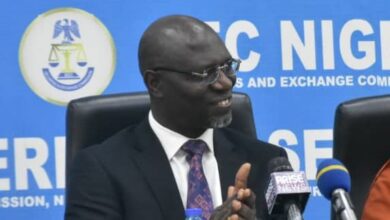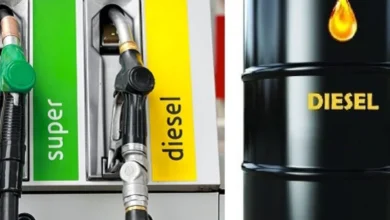Non-oil Export Repatriation: CBN Pays Exporters N3.5bn In Rebates -Emefiele

The Governor of the Central Bank of Nigeria (CBN), Mr Godwin Emefiele said, the bank has paid eligible exporters over N3.5 billion in rebates, under the non-oil export repatriation scheme.
Emefiele disclosed this at the maiden edition of the biannual Non-oil Export Summit held Thursday, June 16, 2022 in Lagos.
TheFact Daily recall, that on February 10, 2022, the CBN in collaboration with the Bankers’ Committee unveiled an initiative known as “Race to US$200 billion in FX Repatriation”.
The RT200 FX Programme was launched as a set of policies, plans and programmes aimed at raising US$200 billion in non-oil export earnings over the next 3-5 years.
The program was anchored on five pillars, namely: Value-Adding Exports Facility, Non-Oil Commodities Expansion Facility, Non-Oil FX Rebate Scheme, Dedicated Non-Oil Export Terminal, and Biannual Non-Oil Export Summit.
The scheme was designed to incentivize exporters in the non-oil export sector to repatriate and sell their export proceeds in the local foreign exchange market and earn a rebate.
Speaking at the Summit on Thursday, Emefiele informed that after the first quarter of implementing the scheme, the apex bank “recorded a significant increase in non-oil export repatriation, and have paid eligible exporters over N3.5 billion in rebates”.
Emefiele explained that the programme was borne out of the realization that the nation’s current sources of foreign exchange inflows were unreliable, and perennially prone to exogenous vicissitudes of global economic developments, especially, shocks from oil prices plummet, therefore, the need to focus on strategies that could help the country earn more stable and sustainable inflows of foreign exchange.
He noted, that the summit, which was in continuation of the implementation of the Programme, was to help harness ideas on how the country could increase the value and volume of export, and improve the availability of foreign exchange therefrom.
The CBN boss said, the Nigerian economy has been challenged in many fronts in recent years due to a combination of local and global factors.
He said, “the disruptions due to the COVID-19 pandemic, delays in global logistic value chains and local security challenges have exerted undue pressure on the economy, making macroeconomic management very difficult.
“These factors impacted oil production and prices, disrupted trade and exports, reduced capital inflows and impacted food production. They also exposed the fragility of the Nigerian economy and the need for a more diversified economy.
“Yet, in the face of these challenges, the Central Bank of Nigeria has been confronted with rising demand for foreign exchange for both goods, services, and other needs. With this unabating demand, the Bank has been working to manage both the demand and supply side to meet foreign exchange obligations.
“However, Monetary Policy alone cannot bear all the burden of the expected adjustments needed to manage these difficulties. These problems call for urgent design and steadfast implementation of other supportive, structural, and complementary policies that are broad based, coordinated and focused on complementing the work of the monetary authority”, he said.
He is optimistic that the end of the summit, presenters, panelists and participants would come up with even more innovative solutions to the problems of non-oil exports in Nigeria.
“I strongly believe that the ideas harnessed from this maiden summit would be invaluable in helping us reach our ultimate goal of US$200 billion in non-oil exports over the medium term”, he added.
Emefiele said, the goal may appear unattainable to some. But he is resolute and determined that the country could achieve it, because other countries are doing it.
“Many countries that are much less endowed than Nigeria are doing it. Consider for example that agriculture exports alone from the Netherlands was about US$120 billion last year.
“Yet, Netherlands has a land mass of about 42,000 square kilometers, which is much smaller that the land mass of Niger State alone, which sits on over 76,000 square kilometers”, he said.






